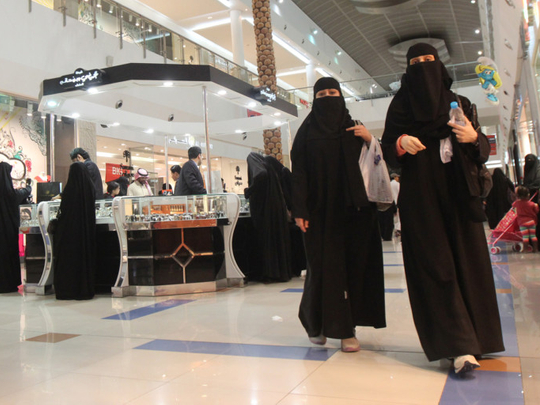
It seems that the issue of the ban against women driving in Saudi Arabia will not be allowed to rest. Ever so often, a movement or action from some influential figure regurgitates the whole issue and the controversy simply refuses to die down.
More recently, a member of the Saudi Shura Council spoke out in favour of letting women drive, stating that it was her right and should not be “denied on religious, social or economic grounds”. During a Council session, Dr Latifa Al Sha’lan, a woman member who had been appointed to the Council when the late Saudi King Abdullah Bin Abdul Aziz approved the inclusion of women in the consultative body, said that the oft-touted claims by rejectionists that the atmosphere was “not appropriate yet to allow women to drive as the country is facing internal and external challenges” was simply balderdash!
In her argument, Dr Sha’lan told a local daily: “We have been facing internal and external challenges since the state was founded by King Abdul Aziz and if we look carefully at our history in the last 50 years, we will say, according to this logic, that no time was ever appropriate to allow women to drive since we are always in the midst of a tumultuous ocean of challenges.”
A few days later, Prince Al Waleed Bin Talal, one of the most influential Arabs in the region, jumped into the fray when he released a statement, saying: “Preventing a woman from driving a car is today an issue of rights similar to the one that forbade her from receiving education or having an independent identity. They are all unjust acts by a traditional society, far more restrictive than what is lawfully allowed by the precepts of religion. Having women drive has become an urgent social demand predicated upon current economic circumstances.”
I asked some of my readers for their views on these recent developments. Mahmoud, a Sudanese accountant, said: “I do believe that there are many more factors to be taken into account before allowing women to drive. Major issues such as traffic for instance. I am confident that if women are allowed to drive, most of them will never give up their drivers. This would mean adding tens of thousands of cars and drivers into the highly congested roads in Jeddah, Riyadh and all other major cities.”
Amro, a Saudi aircraft engineer said: “I am with the vote for women driving in this country. Once our people know how to follow rules and regulations and know what respect of law means, and once the government itself knows how to implement the law and enforce it, we will see a change in people’s mentalities.”
Nadia, a Saudi grandmother, said that a lot “strain” was “put on the male members of a family by denying women the right to drive”. She said: “How can they perform their jobs if they need to chauffeur their children and female members of the family to and from work or schools? From what I understand, the government is encouraging Saudisation. How can you accomplish that if Saudi men are not doing their jobs because they need to address the needs of their family? What is more important? Family or work? Can you take care of your family if you have no work? You are creating a workforce that believes it can leave work any time to run personal errands, a practice that is undesirable in any professional organisation ... A sad state of affairs if you ask me.”
Rahul, an expatriate from Lucknow, in India, said: “Who cares? There are more important issues in the world than driving for Saudi women ... My feeling is that they (Saudi women) should be kept under wraps.”
Freja, a Danish expat who works at a hospital added: “Recently, this issue has become more important to me as my husband is suffering from cancer. His salary has now been cut and I am left to raise the children on my moderate income. So yes, women must drive and must drive now. The cost of living is going up here [in Saudi Arabia]. Yet, salaries do not reflect that. Secondly, I am so tired of feeling awkward, being driven around by another human being ... Why should I put myself in danger with a stranger in this way?”
To many forward-thinking residents, the ban on women driving is the final frontier that has to be conquered. Momentum on the issue ebbs and flows with time. But just as strong tides resist stubborn rocks and turn them into soft rubble, sooner or later, this issue too will erode into acceptance.
Tariq A. Al Maeena is a Saudi socio-political commentator. He lives in Jeddah, Saudi Arabia. You can follow him on Twitter at www.twitter.com/@talmaeena.









